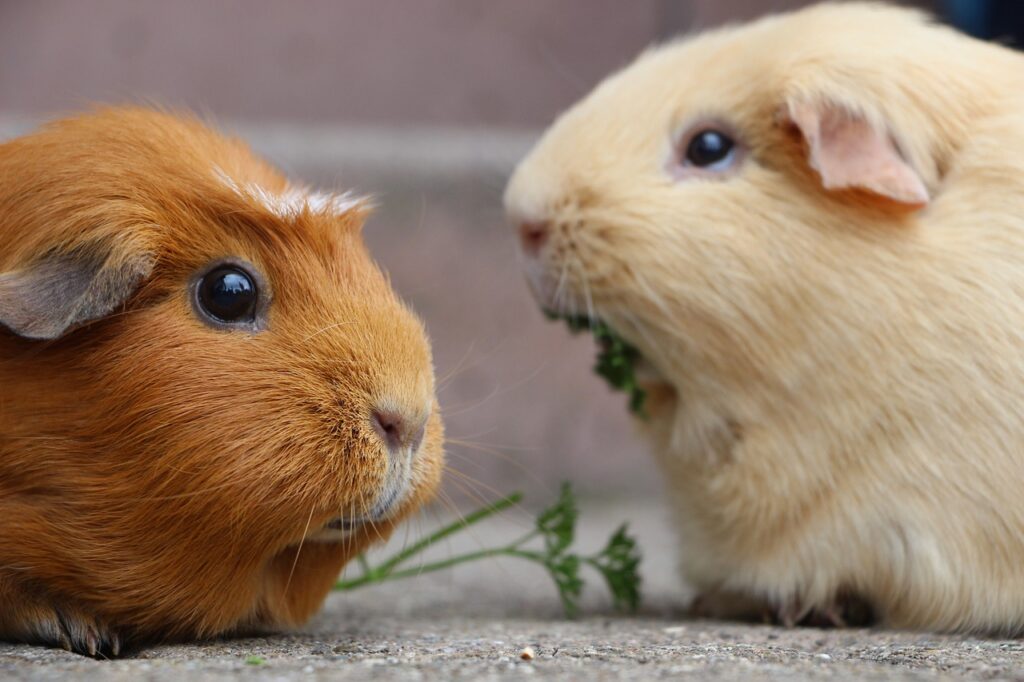Can Guinea Pigs Eat Peppers? — Find Out Here
Guinea pigs are adorable and lively little creatures, and as pet owners, it’s our responsibility to ensure they receive a balanced and nutritious diet. One common question that often arises is whether guinea pigs can safely consume peppers. In this article, we will explore the benefits of feeding peppers to guinea pigs, discuss recommended serving sizes, potential precautions, and even shed light on whether other pets can enjoy this delicious treat. So, let’s dive in and learn more about guinea pigs and peppers!
The Benefits of Feeding Peppers to Guinea Pigs
Feeding peppers to guinea pigs can offer numerous advantages, both in terms of nutrition and taste. Peppers, especially the colorful varieties like red, yellow, and green, are rich in essential vitamins and minerals. These vibrant vegetables are packed with vitamin C, which is vital for guinea pigs as they lack the ability to synthesize this vitamin on their own. By providing peppers as part of their diet, you can boost their immune system, support healthy growth, and enhance their overall well-being.
In addition to vitamin C, peppers also contain vitamin A, vitamin B6, folate, and fiber. These nutrients contribute to the guinea pig’s healthy digestion, strong immune system, and improved eye health. By incorporating peppers into their diet, you can ensure that your furry friend receives a varied and balanced meal.
The Recommended Quantity of Peppers for Guinea Pigs
When it comes to offering peppers to your guinea pigs, moderation is key. While peppers are safe for guinea pigs to eat, it’s important not to overdo it. Recommended serving sizes suggest providing a quarter of a pepper every 2–3 days. This portion size ensures that your guinea pig receives the essential nutrients without consuming too much sugar or fiber, which could potentially cause digestive issues. Always remember to remove any seeds or stems from the peppers before serving them to your furry friend.
Considerations and Precautions
Although peppers are generally safe for guinea pigs, a few precautions should be taken into account. Some guinea pigs might have a sensitive digestive system, and certain vegetables, including peppers, could cause them gas or diarrhea if consumed in excessive amounts. If you notice any digestive disturbances after introducing peppers, it’s best to consult your veterinarian for guidance. Additionally, it’s important to select fresh, organic peppers and give them a good rinse before serving them to your guinea pig, as pesticides and other harmful chemicals can adversely affect their health.
Can Other Pets Enjoy Peppers Too?
While guinea pigs can enjoy peppers as a safe and nutritious treat, it’s important to note that not all pets can consume them without consequences. Animals such as dogs and cats may experience digestive discomfort or allergic reactions if they consume peppers. If you have multiple pets at home, make sure to keep peppers away from their reach, as it’s always better to be safe than sorry. Always research the specific dietary needs and restrictions of each pet before introducing new food items.
Conclusion — A Tasty and Healthy Treat for Guinea Pigs
In conclusion, guinea pigs can indeed eat peppers and benefit from their nutritional value. Peppers offer a rich source of vitamins and minerals, particularly vitamin C, that contribute to your guinea pig’s overall health and well-being. However, it’s crucial to provide peppers in moderation, adhering to the recommended serving sizes, and closely monitor your guinea pig’s reaction to ensure their digestive system remains stable. By offering peppers as part of a balanced diet, you can enhance your guinea pig’s diet and provide them with an enjoyable and healthy treat. Remember, responsible and attentive feeding is key to ensuring your furry friend’s happiness and longevity.






